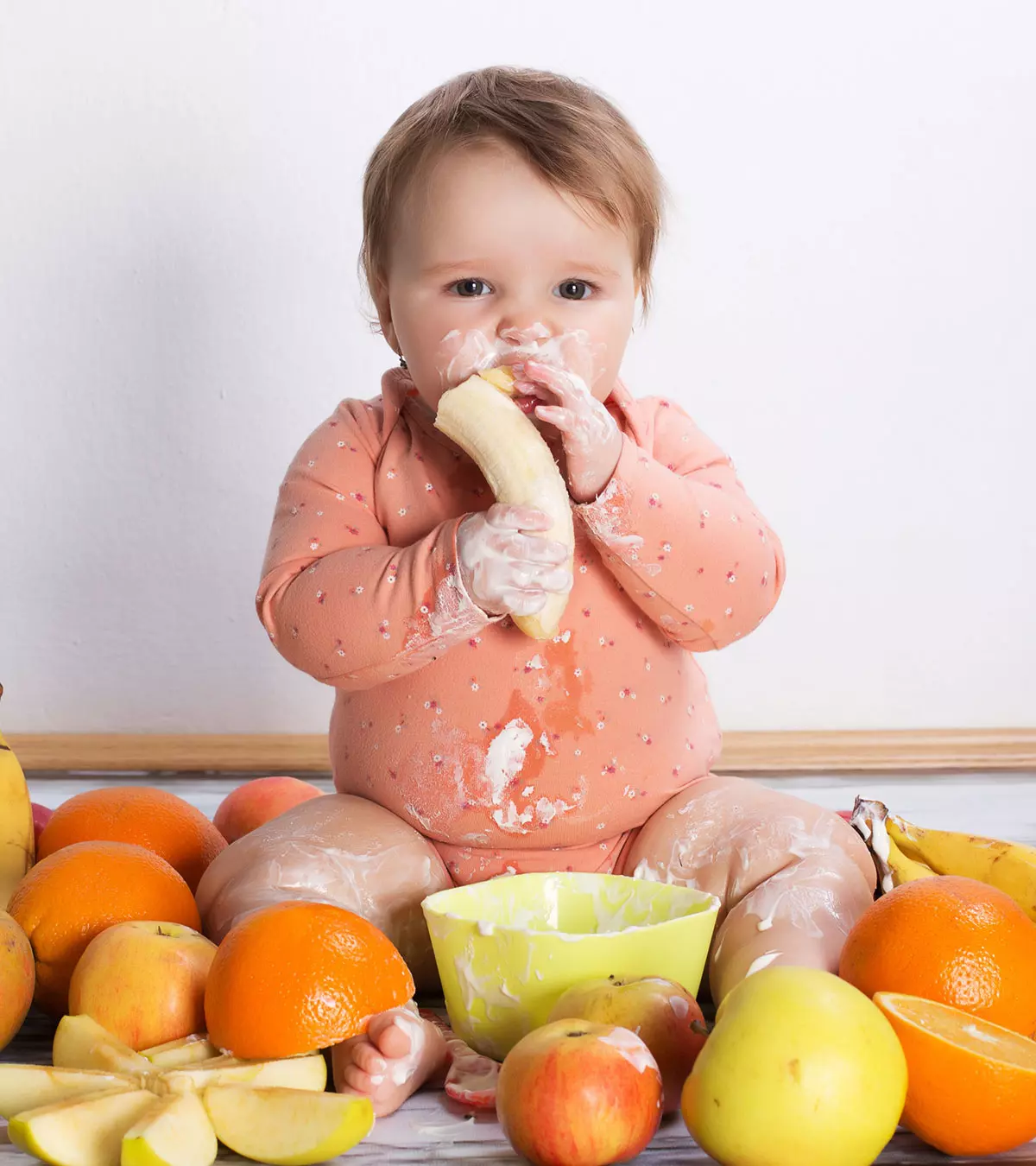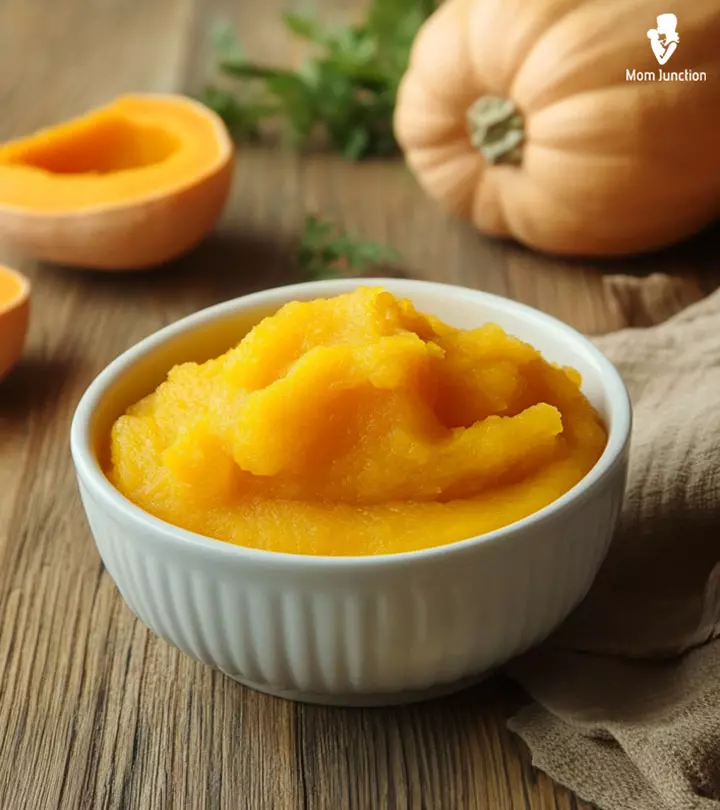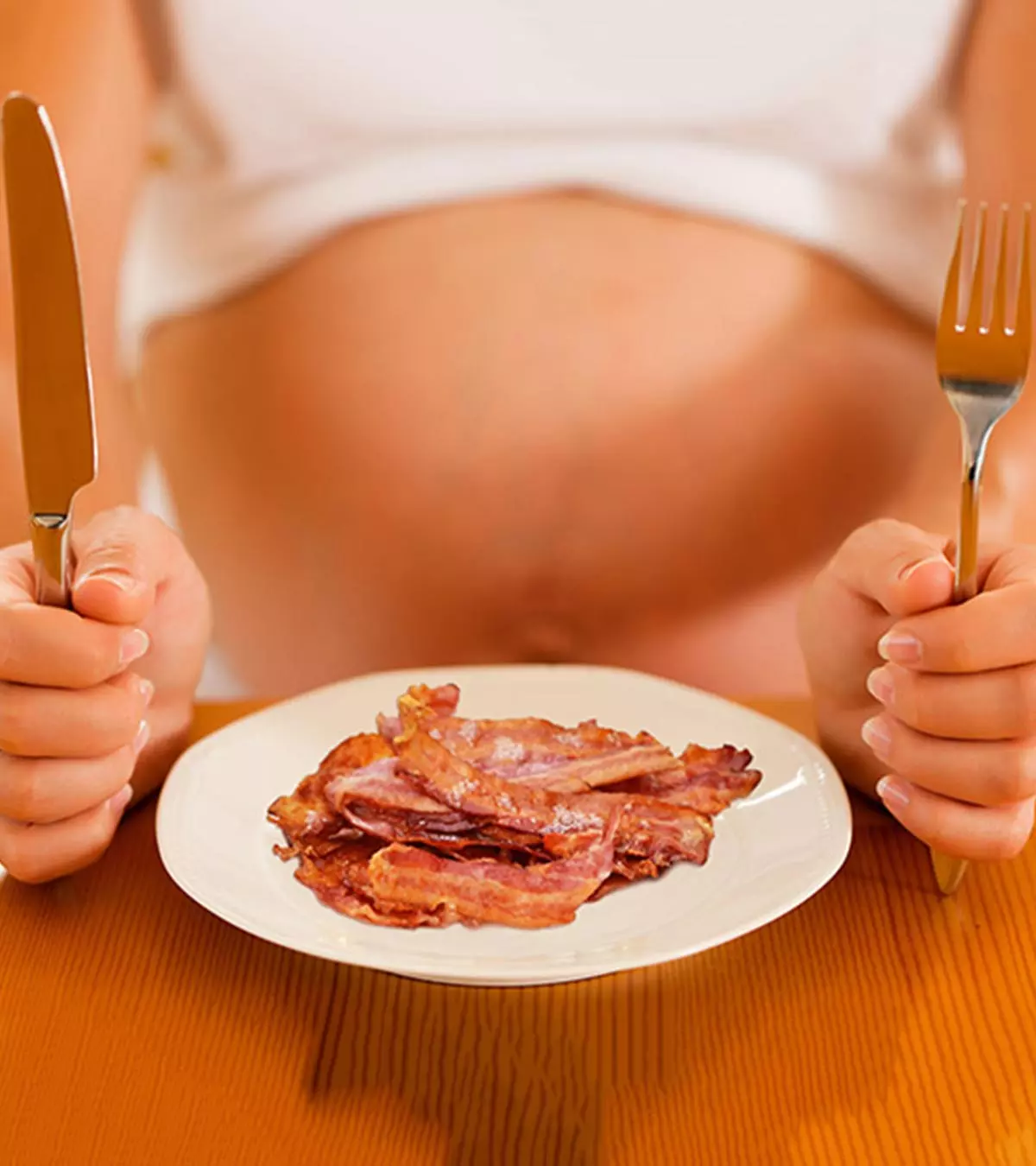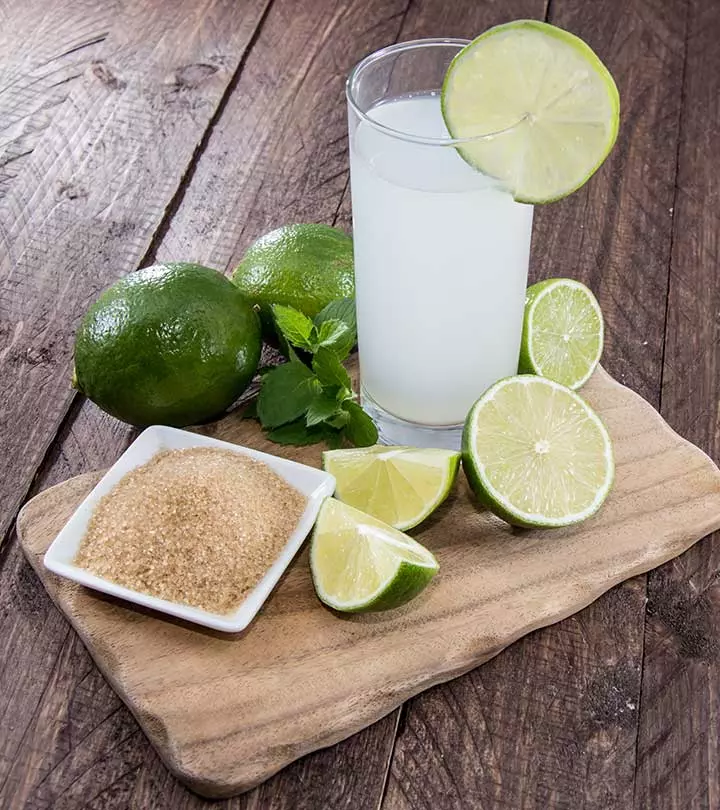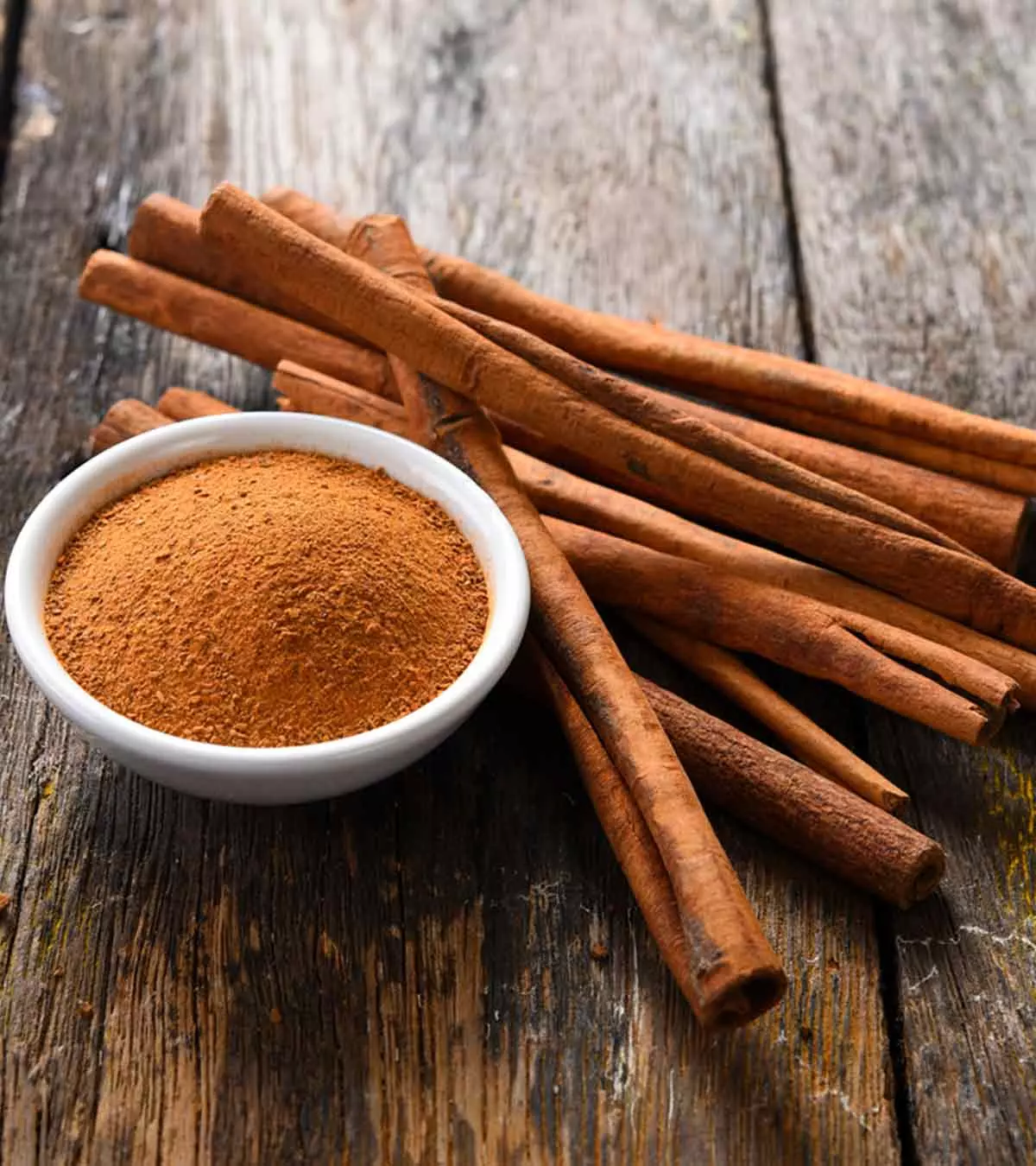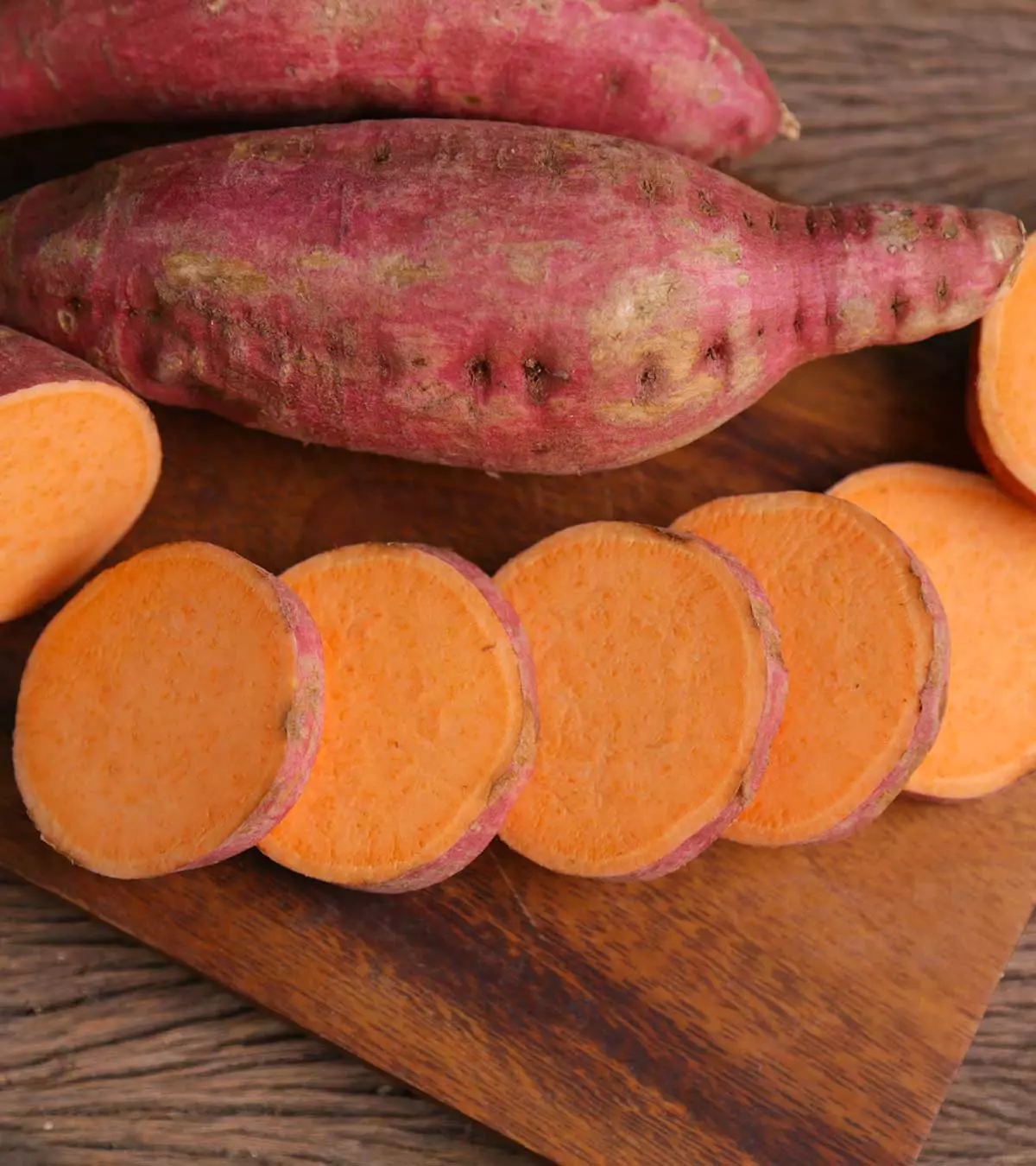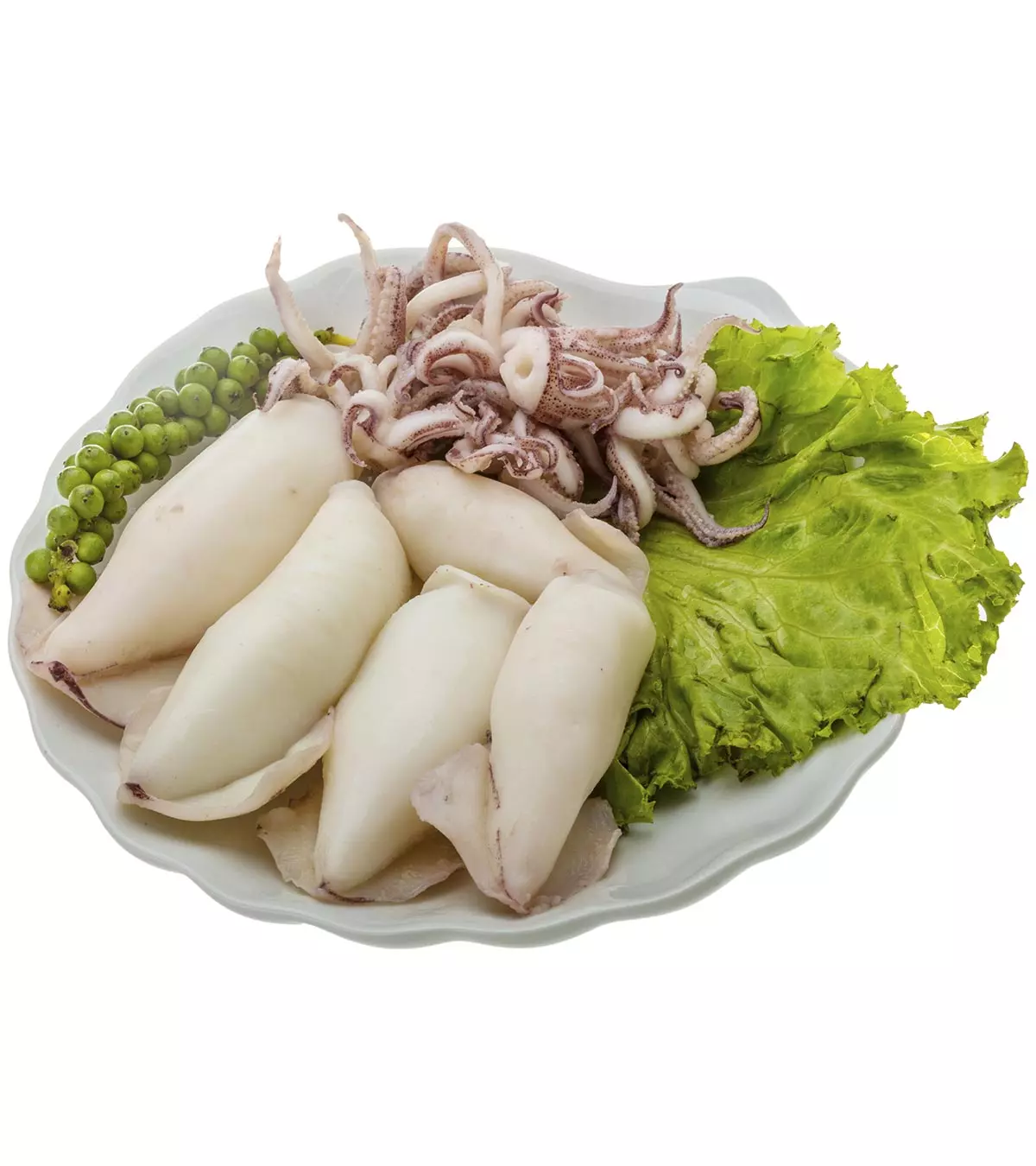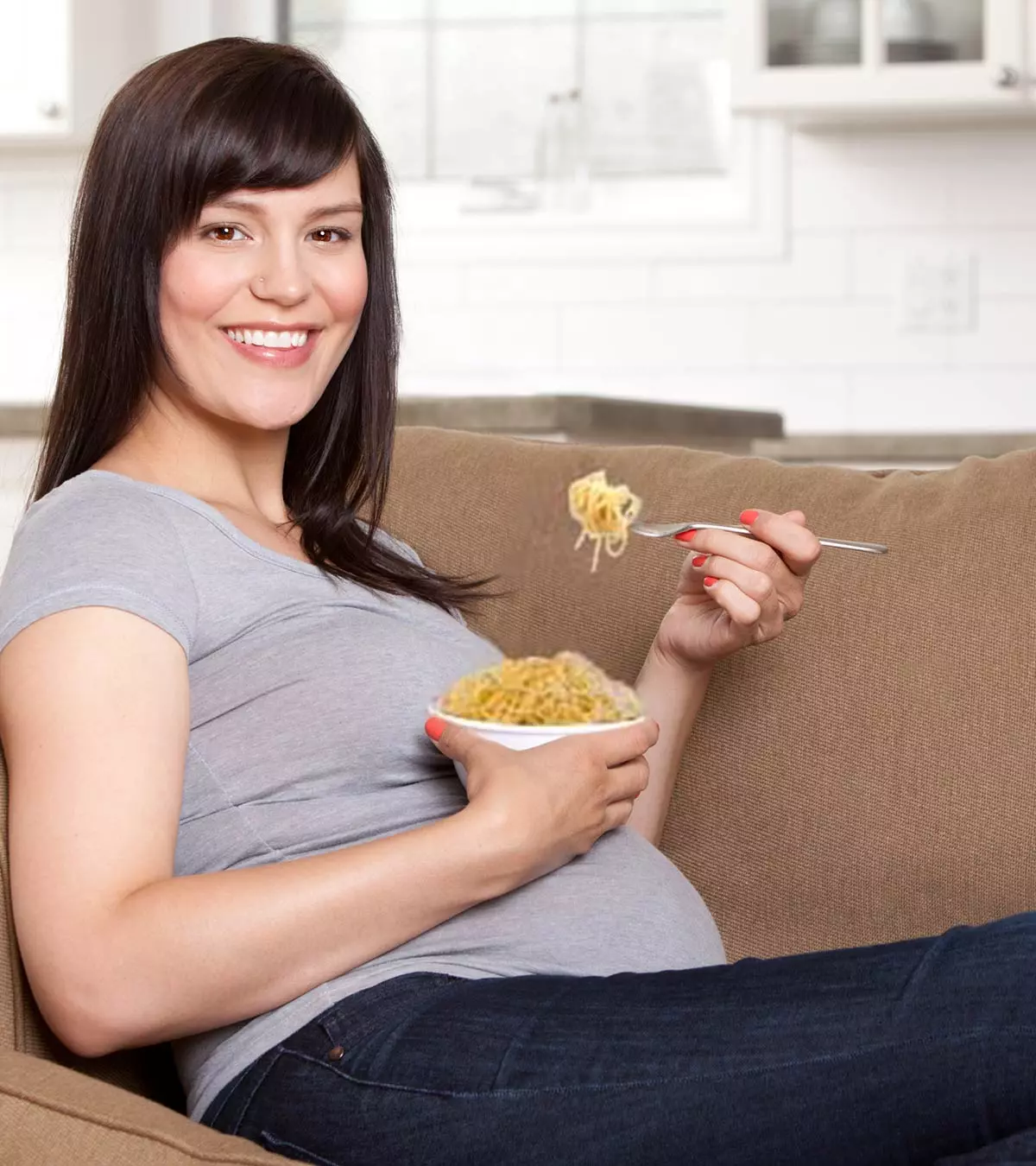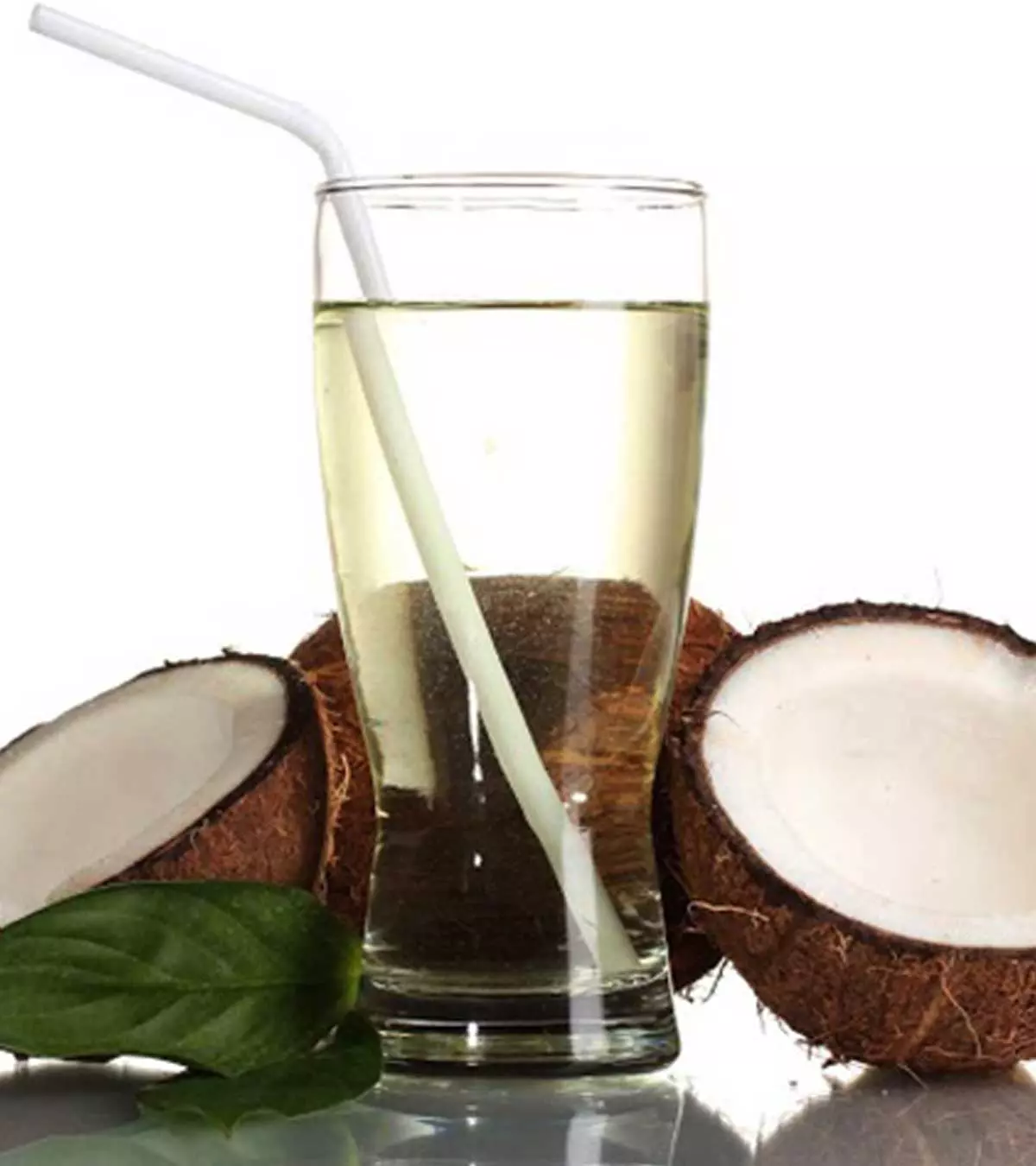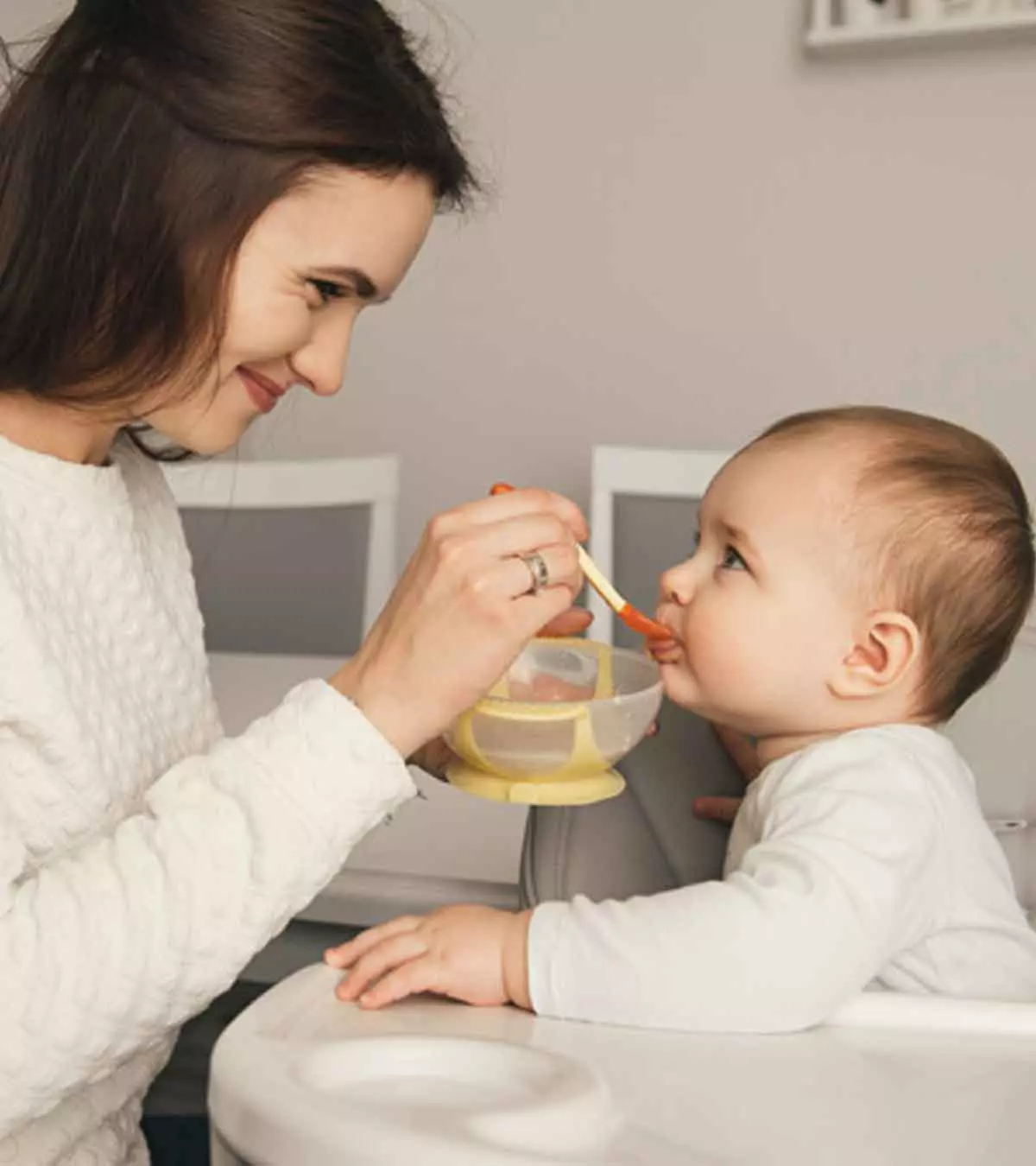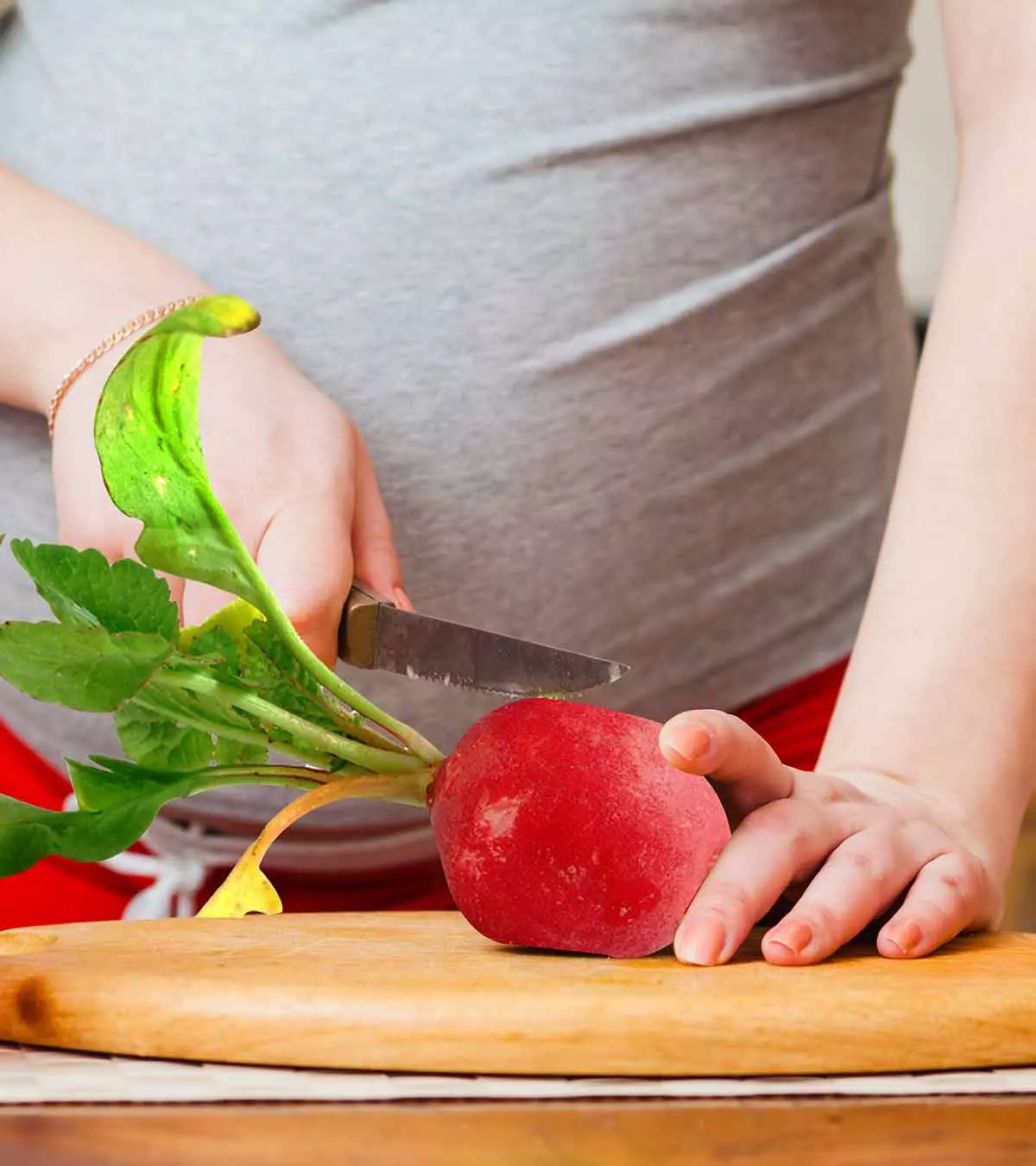
Image: ShutterStock
Vegetables are a great source of nutrition for pregnant women. However, you might be curious to know about the safety of radish during pregnancy. The vegetable is known to have numerous health benefits and provides many essential nutrients required for a healthy pregnancy. However, consuming it raw may cause infections that lead to further complications in some cases. However, it does not imply that pregnant women cannot eat radish. If you have food cravings for radish, follow some safety tips when cooking so you can enjoy its nutrition without dealing with any infection. Read the post to understand more about the benefits and risks of eating radish during pregnancy.

Key Pointers
- Radish is a great source of calcium, folic acid, potassium, iron, and vitamin C.
- Foods contaminated by soil, raw and unwashed vegetables may cause salmonella and E.coli infections that can affect your baby’s health adversely.
- In rare cases, contaminated food may lead to miscarriage, fetal death, and preterm delivery.
- Radishes can be consumed after thorough washing and scrubbing to reduce the risk of contamination.
- Properly steaming or cooking the vegetable can kill the pathogens that may cause infection.
The Health Benefits Of Radishes
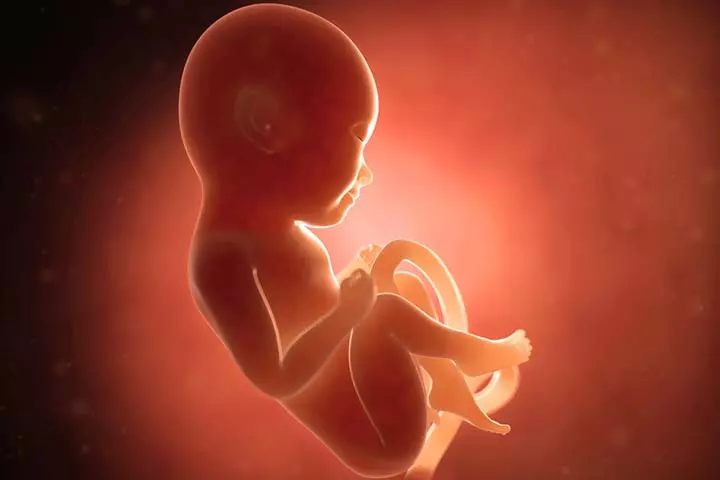
Just a single serving of radishes a day can provide your body many important nutrients your developing baby needs. Radish is a rich source of calcium. Calcium is an important nutrient you need to have during pregnancy as it aids the development of the baby’s bones and muscles.
Radishes are a storehouse of folic acidi, which is a vital nutrient for pregnant women. Adequate folic acid levels in the body protect your baby against any birth defects (1). According to the US National Birth Defects Prevention Network (NBDPN), adequate amounts of folic acid before and during pregnancy can prevent about 70% of serious birth defects (6).
In addition to that, radishes also contain potassium, iron and vitamin C, which can be extremely beneficial for an expecting mom.
Is Radish Good During Pregnancy?
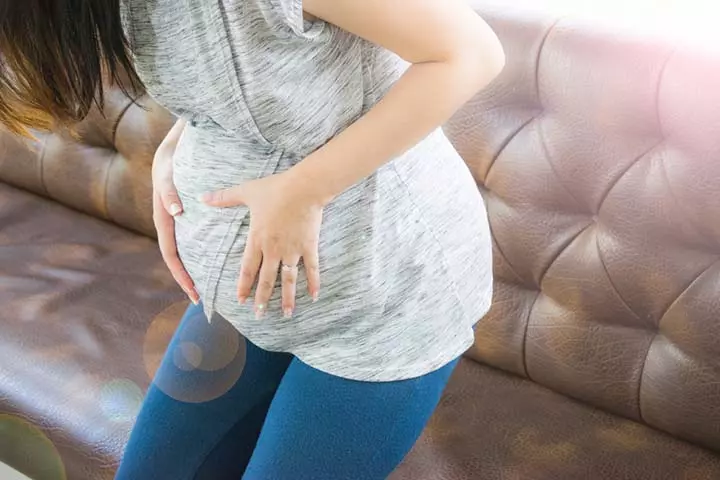
You may be surprised to note that radishes, one of the most common root vegetables which are a super-food, are not safe for consumption during pregnancy.
Pregnancy is a critical time when your baby’s growth and development are at stake. According to Colorado State University, a woman is prone to illnesses during pregnancy as her immunity is low. Foods grown in contaminated soil are likely to contain toxoplasmosisiA parasitic infection caused by the consumption of undercooked meat . The germs may pass from the raw vegetables into the body and cause various infections.
The consumption of unwashed, raw vegetables during pregnancy may lead to a higher risk of salmonellaiA common bacterial infection affecting the intestinal tract and E.coli infections. (2) Fever and dehydration, the classic symptoms associated with these infections, may adversely affect your baby’s health.
 Caution
CautionIn rare cases, a severe infection may lead to a miscarriage, fetal death, and preterm deliveryiAlso called premature delivery, any birth that occurs before the 37th week of pregnancy .
Therefore, remember any laxity in diet on your part may lead to complications in your pregnancy. You can only munch on radishes if you follow a few safety measures while consuming it.
Safety Measures To Follow
The threat of infections does not necessarily imply that you ban radishes from your kitchen during your pregnancy. You just need to follow a few safety precautions while eating radishes and other raw vegetables so that you can keep the threat of infections at bay.
Blanca Garcia, a registered dietitian nutritionist from Los Angeles, California, says, “Since radishes grow in soil, they may contain harmful bacteria that can upset your stomach and lead to severe illnesses for you and your baby. To avoid this, I recommend thoroughly washing them under running water and scrubbing them with a clean vegetable brush. Also, don’t forget to decontaminate your hands with hot, soapy water before and after handling raw radishes.”
Here is a list of safety measures you can take before you snack on radish salad.
- Make sure you wash the vegetables properly and scrub off any visible dirt. Never consume raw vegetables without washing them thoroughly.

- If you must, make use of a vegetable brush to get rid of all the traces of dirt and grime on the vegetable.
- It is advisable to properly steam or cook the vegetables before consuming them. Heat kills the pathogens that cause infections and makes the fresh vegetables safe for consumption.
- Add radishes to your soups or sauté them to make a healthy side dish.
- Prefer to have hot or warm dishes made with radish which need preparation under heat ,prefer not to eat raw.
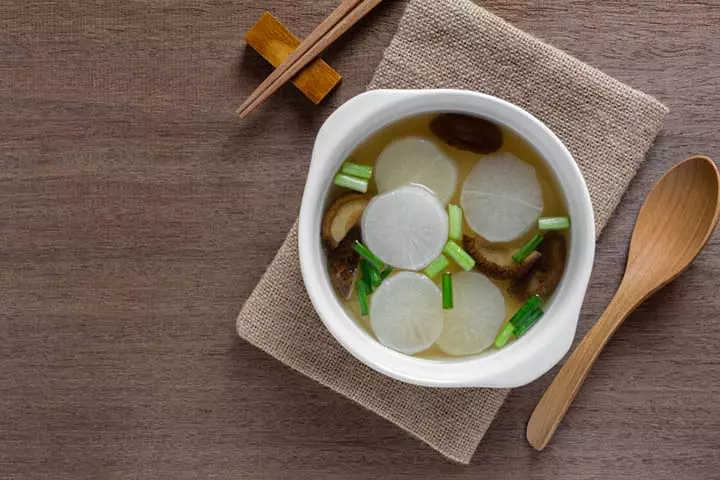
- If you have chopped radishes on a chopping board, make sure you clean it again before proceeding to chop other vegetables.
 Quick tip
Quick tipFollow these simple steps to safely add radishes to your diet and enjoy its nutritional benefits. You may also consult your doctor before grabbing one.
Frequently Asked Questions
1. Can radish cause food poisoning during pregnancy?
Garcia opines, “The nutritional contents and chemical compounds of radishes will not cause food poisoning. However, since they are a root crop, the risk comes if you don’t wash and cook them properly before consumption. Additionally, the seeds of sprouts can also contain bacteria (E.coli and Salmonella), so it is best to avoid raw radish sprouts entirely.”
2. Can I eat pickled radish during pregnancy?
“Pickled radish is reasonably safe during pregnancy if consumed in moderation. However, most pickled foods have high sodium content, which is not advisable, especially during pregnancy. I suggest checking the ingredients list for artificial sweeteners and preservatives, which may not be beneficial for pregnant women,” Garcia adds.
3. How can radish help improve digestion during pregnancy?
The high fiber content in radish can improve digestion during pregnancy by promoting bowel movements and clearing the colon. It also facilitates the secretion of digestive juices and bile for better overall digestive function (3).
4. How can radish help reduce morning sickness during pregnancy?
Radish contains B-6 vitamins and zinc, which are linked to reducing morning sickness or nausea during pregnancy. They are also rich in vitamin A carotenoids, vitamin C, folic acid, and dietary fiber (4).
5. How can radish help pregnant women maintain a healthy weight?
Radishes can help pregnant women maintain a healthy weight because they are low in sodium, high in potassium, a natural diuretic, and a natural appetite suppressant due to their high water content (5).
A little caution in food choices can ensure healthy eating in pregnancy. Vegetables are a storehouse of nutrition, but consuming them raw may not be safe during pregnancy. Radish offers calcium, folic acid, potassium, iron, and several other nutrients for fetal development. However, eating raw radish during pregnancy as a prenatal care diet might not be suitable as it may increase the risk of salmonella and E.coli infections. These infections may adversely affect the fetus, causing miscarriage or preterm delivery. Therefore, healthy eating habits like scrubbing and washing the radishes thoroughly before eating, steaming, and cooking them, or adding them to soups and stews to stay safe during pregnancy.
Infographic: Tasty Radish Dishes To Try During Pregnancy
Radishes are savory veggies that have a distinct earthy flavor. They can be incorporated into your pregnancy diet in several ways. The infographic below presents some amazing and healthy radish dishes that you can relish while pregnant. Don’t forget to share it with your friends! Illustration: Momjunction Design Team
Illustration: Is It Safe To Eat Radish During Pregnancy?

Image: Stable Diffusion/MomJunction Design Team
References
- What to eat when pregnant.
https://www.unicef.org/parenting/what-to-eat-when-pregnant - Radish Basics.
https://foodhero.org/sites/foodhero-prod/files/monthly-magazines/March%20Food%20Hero%20Monthly_0.pdf - 10 Reasons to Add Radish (Mooli /Mula) to Your Menu
https://www.freedomfromdiabetes.org/blog/post/10-reasons-to-add-radish-to-your-menu/2691 - Top 12 Foods to Beat Morning Sickness Naturally (Part 2)
https://achs.edu/blog/top-12-foods-to-beat-morning-sickness-naturally/ - Radishes
https://www.fondation-louisbonduelle.org/en/vegetable/radishes/ - Folic Acid: the Vitamin That Helps Prevent Birth Defects
https://www.health.ny.gov/publications/1335/#:~:text=Folic%20Acid%20Can%20Help%20Prevent%20Birth%20Defects,-All%20women%20need&text=Folic%20acid%20can%20reduce%20certain,tube%20defect%20is%20spina%20bifida.
Community Experiences
Join the conversation and become a part of our nurturing community! Share your stories, experiences, and insights to connect with fellow parents.
Read full bio of Shivani Sikri
- Blanca Garcia has been a registered dietitian nutritionist since 2013 with a private practice in Pasadena, California. She currently consults through the preschool Head Start Programs in Los Angeles. Blanca graduated in 2011 from California State University of Los Angeles and interned at the University of Puerto Rico Medical Science campus in 2012.
 Blanca Garcia has been a registered dietitian nutritionist since 2013 with a private practice in Pasadena, California. She currently consults through the preschool Head Start Programs in Los Angeles. Blanca graduated in 2011 from California State University of Los Angeles and interned at the University of Puerto Rico Medical Science campus in 2012.
Blanca Garcia has been a registered dietitian nutritionist since 2013 with a private practice in Pasadena, California. She currently consults through the preschool Head Start Programs in Los Angeles. Blanca graduated in 2011 from California State University of Los Angeles and interned at the University of Puerto Rico Medical Science campus in 2012.
Read full bio of Ria Saha
Read full bio of Swati Patwal
Read full bio of Dr. Joyani Das







